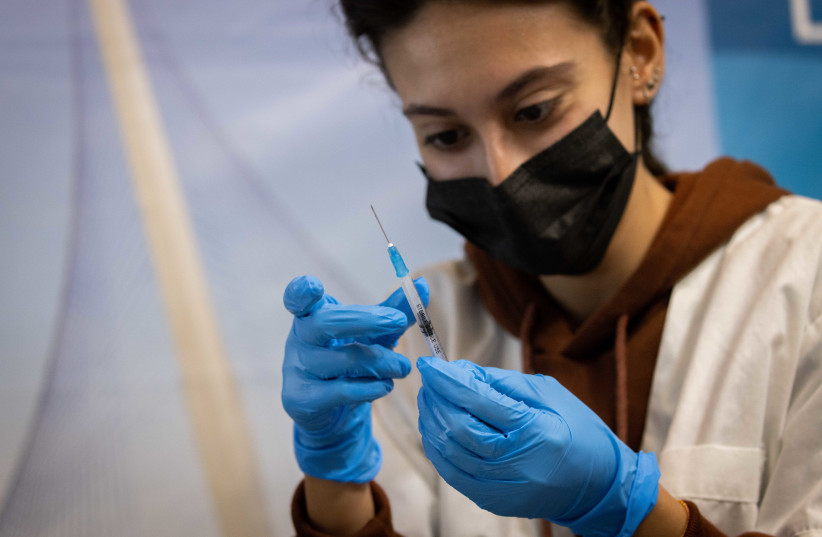Could global travel soon become an option solely for citizens of countries that offer vaccinations, thereby further increasing the divide between wealthy and impoverished nations?
The US announced on Tuesday that it will join countries, such as Israel, in only allowing vaccinated tourists to enter.
The move is likely to keep US citizens safer, according to health experts, but also means that tourism flows will further be re-routed and the geopolitical scene further fragmented for many years to come.
“The great vaccine divide between rich and poor countries will have consequences that outlast the pandemic,” explained Agathe Demarais, global forecasting director and trustee for the Economist Charitable Trust, an independent charity that is meant to leverage the journalistic expertise of The Economist newspaper.
While the US said it would work to allow some travelers from countries with less than a 10% total vaccination rate due to lack of availability of vaccines into the States, a senior administration official made clear that “in the low vaccine availability countries, people will also need to have a compelling reason to come here.

“So, it’s just not that they’re coming here for any reason; they need to have a specific, compelling reason. So, tourist visas will not qualify for that,” the official said.
In addition to it becoming more common for unvaccinated people to be barred from entering vaccinated countries or being forced to quarantine for a long period of time on arrival, there is a growing trend of vaccinated people not wanting to travel to unvaccinated places where they are at higher risk of contracting the disease.
It is also becoming increasingly acceptable for countries to differentiate between vaccines when accepting tourists.
The American announcement said the only vaccines that will be accepted for entry into the country are those either approved by the US Food and Drug Administration or the World Health Organization. This means that the hundreds of millions of people worldwide who have taken Russia’s Sputnik V vaccine will be barred from traveling to the US.
MICHAEL EDELSTEIN, a professor of population health at Azrieli Faculty of Medicine of Bar-Ilan University, said it is starting to become clear that not all vaccines are created equally. As such, he said it is logical that countries that are only accepting vaccinated travelers to keep out COVID would err on the side of caution and prohibit individuals inoculated with less-protective vaccines.
The Chinese vaccines, for example, are starting to appear less effective, especially against the Delta variant. The Seychelles, which had vaccinated the majority of its population with China’s Sinopharm vaccine, had to re-impose a lockdown in June, Demarais said.
“I would expect at some point that some countries will stop recognizing people vaccinated with the Chinese vaccines – and we are talking about more than a billion people,” she added.
The situation becomes unfair at best because generally, individuals did not have a choice which vaccine they were given by their country.
One result could be rising political tensions.
“Resentment is emerging in countries,” Demarais said, against local governments, “which are seen as unable to provide much-needed vaccines.”
She also said that social unrest could erupt against richer states, which are perceived as hoarding vaccines.
“I have been really struck by how much resentment there is in the developing world against rich countries that are seen as failing to provide vaccines” to countries in need, she added.
Finally, in such a culture of vaccine passports being only for the privileged, agreeing to recognize a country’s vaccine certificate or vaccine in general could be used by politicians for diplomatic gain.
Earlier this week, Health Minister Nitzan Horowitz announced deals with the United Arab Emirates and Bahrain to recognize each other’s vaccine certificates and Green Passes.
Edelstein said that there are discussions going on between Israel and Russia, with Russia pushing the country to validate its shot.
“You can imagine that this negotiation is not purely going to be about the effectiveness of the vaccine,” he said. “It is going to be used as a bargaining chip and become part of the diplomatic discussion.”
He admitted, however, that while vaccine passports are complex from an equity standpoint, from an epidemiological perspective, “when you have areas with high disease or with a lot of viral spread, and other areas with less, then it makes sense to try to limit the risk of reentry. One way to do this is to basically take as many steps as you can to stop people from entering the country that are infected.”
In other words, only letting people in who are vaccinated is safer.
Israel’s mass booster campaign helped the country get the Delta wave under control. In order to ensure the country stays open, it is legitimate and makes sense that the country would make all efforts to limit reimportation of the virus – particularly of any new variants.
“Most epidemiologists agree with the mantra that no one is fully safe until everyone is safe,” Edelstein added. “We live in a globalized world where travel and trade occur all the time. It is in everyone’s interest to push for more global distribution of the vaccines.”
In the meantime, as the US and others opt to keep unvaccinated tourists out, the gap between the haves and have-nots is likely only going to widen. And the implications could be both far-reaching and long-term.
“The consequences of vaccine inequity are going to be long-term and outlast the effects of the pandemic,” Demarais said.
